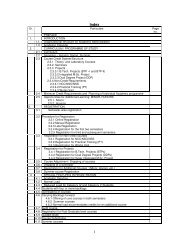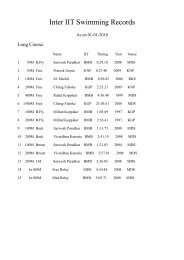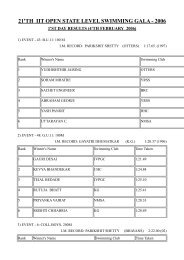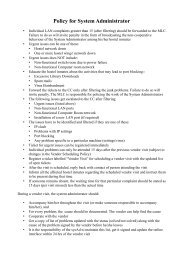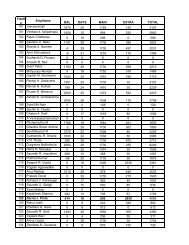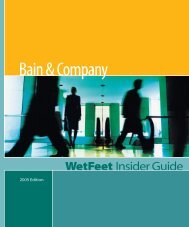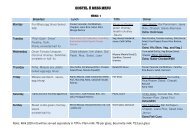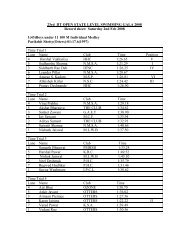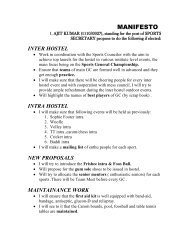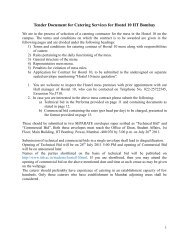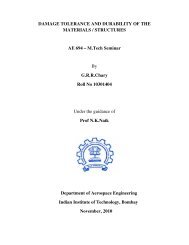Accenture: An insider guide - Gymkhana
Accenture: An insider guide - Gymkhana
Accenture: An insider guide - Gymkhana
You also want an ePaper? Increase the reach of your titles
YUMPU automatically turns print PDFs into web optimized ePapers that Google loves.
The Company<br />
Consultant teams do most of the work at the client site. These range from the small,<br />
paratroop-like squads of the strategy unit, consisting of two to five members, to<br />
massive mobilization units involving dozens to 100 or more folks from other service<br />
areas. Because of the nature of the work, <strong>Accenture</strong> project teams tend to be<br />
larger and more bottom-heavy than those of rival consulting firms that do less<br />
systems work. Many projects have an organizational structure worthy of a small<br />
firm: a senior manager or partner responsible for the most high-level client<br />
interaction, followed several managers who are each responsible for a part of the<br />
project and supervise two or three teams each of analysts and consultants.<br />
Many analysts and consultants will have their own cubicle and workstation at<br />
the client site. If they’re locally based, they may report every day to that station,<br />
just like in an industry job. Strategy consultants and senior managers, who tend<br />
to be more mobile, often work out of a laptop and “totes,” or moveable storage<br />
containers.<br />
Moving from job to job, compounded by the size of <strong>Accenture</strong>, can be a strain.<br />
One <strong>insider</strong> describes the downside of working in consulting this way: “It’s so<br />
big, you’re always changing clients, you never get a sense of belonging.”<br />
Perhaps mindful of losing touch with its far-flung staff, <strong>Accenture</strong> has instituted<br />
activities that connect consultants outside of work. Some are as informal as<br />
dinners out. Others might be as time-consuming as teaching other consultants<br />
about a new programming language.<br />
In 1998, <strong>Accenture</strong> created market unit–based “communities” of 150 or so<br />
employees grouped by their location and industry practice. These communities<br />
meet quarterly in most cities to discuss everything from business to personnel<br />
issues. The ostensible purpose might be to hear a presentation by a resources<br />
consultant in Dallas. But they are really all about networking. “It’s to feel like<br />
you belong to the company, to not get overwhelmed by the fact that it’s a big,<br />
international firm,” says one <strong>insider</strong>.<br />
16



